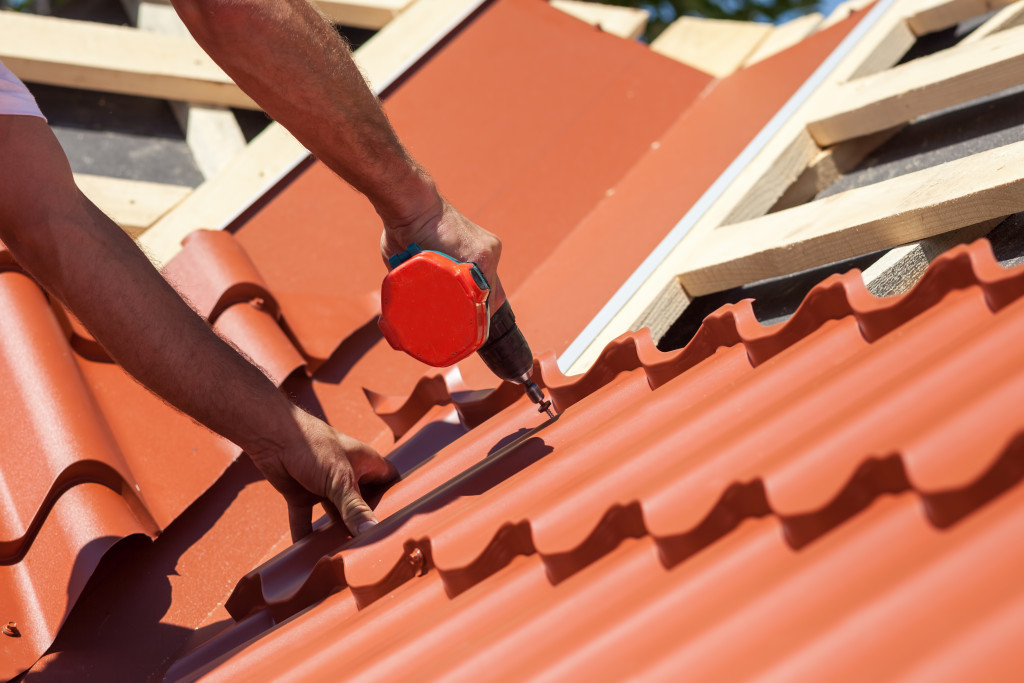When it comes to owning a home, maintenance and repair are essential. Homeowners need to learn and understand the basics of home maintenance and repair to ensure their homes are at their best. Not only will this help save money on expensive repairs, but it can also improve the value of one’s house. Furthermore, homeowners should be aware of the importance of preventive home repair, which can help avoid costly repairs down the road.
One reason why homeowners need to know the basics of home maintenance and repairs is for safety reasons. According to Harvard University’s Joint Center for Housing Studies research, over 10 million owner-occupied housing units needed significant repairs. This included structural deficiencies such as water damage, mold growth, broken windows or doors that are not adequately sealed against weather elements, faulty wiring that could cause fires or other destruction due to electric surges, and other similar issues. Having the knowledge and understanding of how these repairs affect the safety of a home can be invaluable when it comes time to ensure everything is up to code and running correctly.
However, there is one area that homeowners need to stay away from, even if there are maintenance and repair tasks essential for its upkeep – the roof. Roofs are a critical and highly delicate part of any home. It must be maintained, repaired, and regularly inspected to keep it functioning correctly and safe from potential hazards such as water damage or extreme temperature changes. When it comes to roofs, homeowners should not attempt repairs themselves but instead hire a professional service specializing in roof maintenance, repair, and installation. This is where you can profit, but building roofing services as a business takes a lot. Here are a few tips to help you.

Work on Your Skills and License
To provide roofing maintenance services, you must have the necessary skills and licenses. First, a person must be knowledgeable about roofing materials and techniques. A basic understanding of carpentry, building codes, and safety protocols are also essential.
Certification in roofing is the best way to demonstrate your knowledge and show prospective customers that you possess the necessary qualifications. The National Roofing Contractors Association (NRCA) offers certification programs covering residential and commercial roofing systems. These programs include instruction on installation methods, estimating costs, inspection processes, and material selection. In addition to these courses, those wishing to become certified often need to pass an exam and participate in an apprenticeship program with a licensed contractor or an NRCA-affiliated organization.
For those interested in becoming a licensed contractor, there are several steps they must take before obtaining their license. Depending on local laws, gaining a permit may require completing courses from accredited institutions or completing on-the-job training under the supervision of an approved contractor. After obtaining the required courses or experience, applicants must take an exam administered by their state licensing board or another similar organization to gain licensure.

Secure the Necessary Equipment
A person must have the necessary tools and equipment to provide roofing services. These include ladders, safety harnesses, hammers, drills, saws, and other roof repair or installation instruments.
When selecting tools and equipment for your business, it is essential to choose quality products that are durable and reliable. Investing in high-quality tools may cost more upfront but will pay off in the long run as they can last longer than cheaper alternatives.
The Genie AWP-30 Specs can be a handy tool for roofing projects and is often used by professionals in the industry. This lift has an adjustable platform, allowing you to work at various heights on the roof without moving ladders or scaffolding around. It will be a significant investment, but if you plan on doing a lot of roofing jobs, it is worth the money.
Build a Professional Network
In addition to having the necessary skills and equipment, another critical step in building a successful roofing business is creating a professional network. Working with other contractors or suppliers can help expand your client base and provide more opportunities for work. It can also be beneficial when gathering recent information regarding local regulations, new materials, techniques, or upcoming industry trends.
Furthermore, networking with like-minded professionals can open up possibilities for collaboration on larger projects or offer support during difficult times. Creating a community where roofers can share best practices or discuss challenges they are facing can be highly beneficial for all involved.
Final Thoughts
Starting a roofing business is possible if you have the dedication, knowledge, and resources. It can be a successful endeavor with the right tools and professional network. However, homeowners should understand the importance of hiring a professional roofer to perform necessary maintenance or repairs for safety reasons. Taking these steps will help ensure your business sees success from day one.

